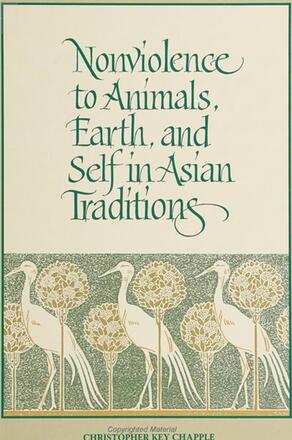
Nonviolence to Animals, Earth, and Self in Asian Traditions
Alternative formats available from:
Description
This book probes the origins of the practice of nonviolence in early India and traces its path within the Jaina, Hindu, and Buddhist traditions, including its impact on East Asian Cultures. It then turns to a variety of contemporary issues relating to this topic such as: vegetarianism, animal and environmental protection, and the cultivation of religious tolerance.
Christopher Key Chapple is Associate Professor of Theology at Loyola Marymount University in Los Angeles. He is the author of Karma and Creativity, co-translator of the Yoga Sutras of Patañjali, and editor of Winthrop Sargeant's translation of the Bhagavad Gita.
Reviews
"I like the accessible way this book is written. It focuses on a most important aspect of Eastern thought and demonstrates its relevance to our current community and individual life in the modern West. At the same time it traces the history of nonviolence in the East in a way that has not been done before. " — Harold G. Coward, University of Victoria
"Usually the Jains are marginalized and seen as having only a minor role to play in the major religious movements of Buddhism and Hinduism. Chapple shifts the focus and gives evidence that the Jains set the pace for the "renouncer" practices of Buddhism and the Yoga School. By placing the Jains prior to the other "renouncer" groups, one has a new vision of the way in which ahimsa˜ or nonviolence developed in India. " — Lewis Lancaster, University of California, Berkeley
"The work as a whole goes beyond the normal confines within which nonviolence has hitherto been studied. A good example would be how the author ingeniously brings together conflicting views of world religions by the Jaina methodology of sya˜d-va˜da, rendered by him aptly as 'flexible fundamentalism. '" — Padmanabh S. Jaini, University of California, Berkeley